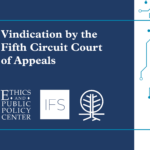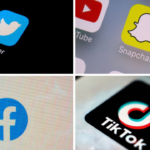
Published April 25, 2021
The recent pressure on Big Tech from Republicans is working, and they should keep it up.
On Monday, Apple announced that it will allow Parler back on its App Store. Apple’s decision comes in response to a letter sent a few weeks ago by Colorado Republican Rep. Ken Buck and Utah Republican Sen. Mike Lee to Apple, Google, and Amazon over their treatment of Parler in the wake of the events on Jan. 6 at the Capitol. They demanded answers on whether the companies handled Parler’s suspensions differently from their usual review processes and whether they coordinated at all in their actions. The congressmen got more than an answer; they got a reversal of Apple’s decision.
This letter is just one of several recent efforts by Republicans to challenge the actions of Big Tech. Sen. Marco Rubio of Florida recently addressed a letter to Amazon questioning its removal of Ryan T. Anderson’s book on transgender issues, When Harry Became Sally, with Sens. Lee, Josh Hawley of Missouri, and Mike Braun of Indiana.
Earlier this month, Hawley unveiled legislation, called the “Trust-Busting For the 21st Century Act,” with the intent of prohibiting Big Tech companies from buying up competitors or startups and opening up the market for new businesses. Hawley signaled that he wants to see companies such as Facebook, Google, and Amazon broken up. This legislation is a direct threat against their abusive behavior.
In the House, Republican staff on the House Energy and Commerce Committee recently distributed a memo as part of their “Big Tech Accountability Platform” to bring “much-needed reform and oversight to Big Tech.” The memo suggests a variety of ways Congress could remove liability protections granted to tech platforms under Section 230 of the Communications Decency Act. And Buck, who last October released an antitrust report on Big Tech called “The Third Way,” is also expected to introduce a series of antitrust bills targeting the tech industry soon.
Republicans have not previously been in favor of intervening to counter Big Tech’s power because of their stance on preserving the free market system. But in just the last few months, Facebook and Twitter removed President Donald Trump from their platforms, Apple, Google, and Amazon banned Parler from their app stores and withdrew their support services, and Amazon stopped selling Anderson’s book, among others. As a result, many Republicans are now acknowledging that this drastic increase in online censorship and the clear coordination of censorship efforts have crossed a serious threshold and have changed the political calculus for Republicans in taking on Big Tech.
This broader shift against Big Tech taking place in the Republican Party can also be attributed in part to Trump and his administration, as they were willing to undertake a broad-scale regulatory scrutiny of technology companies and repeatedly called on Congress to bring fairness to Big Tech. And when the Department of Justice filed its monumental antitrust lawsuit against Google under Attorney General William Barr’s leadership, the tide really started to turn.
And it isn’t just politicians whose perspectives are shifting. A majority of Republican voters now favor the government regulating social media giants and breaking up Big Tech, according to a Center for Growth and Opportunity poll released in February. Fifty-six percent of Republicans, plus around half of independent voters, said they favored breaking up Big Tech companies.
The message now coming from Republicans is clear: Big Tech has gone too far, and we won’t tolerate it any longer. The chorus of voices on the Hill willing to hold the Silicon Valley giants accountable is only growing. The good news, as shown by Apple’s decision this week, is that the new approach is working. Republicans must continue to keep the pressure on Big Tech.
Clare Morell is a policy analyst at the Ethics and Public Policy Center, where she works on the EPPC’s Big Tech Project. Prior to joining the EPPC, she worked in both the White House counsel’s office and the Department of Justice, as well as in the private and nonprofit sectors.











